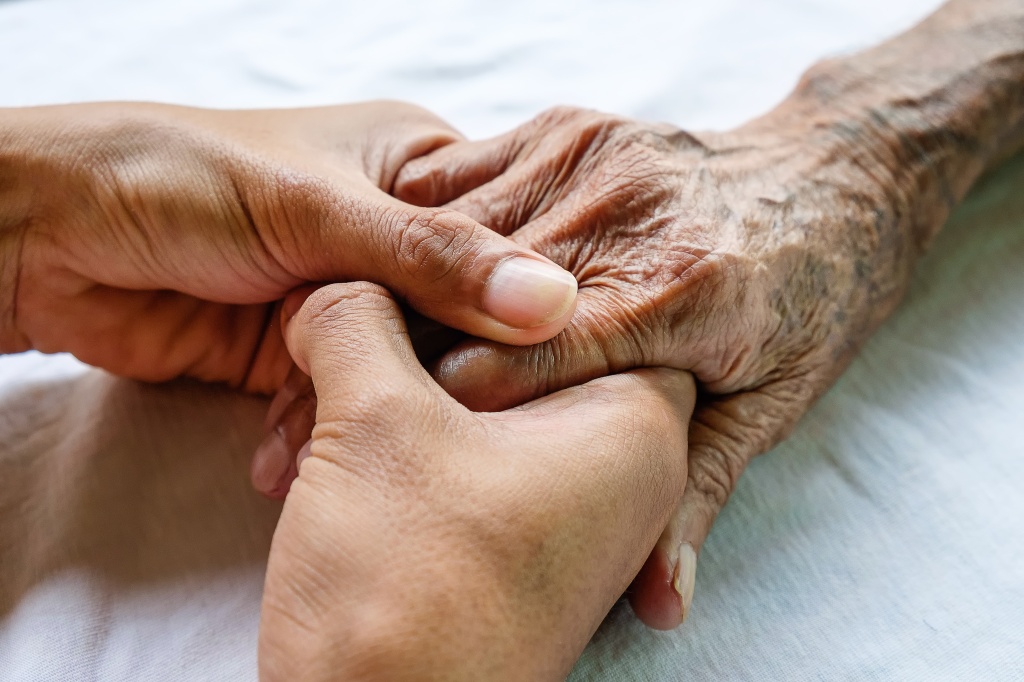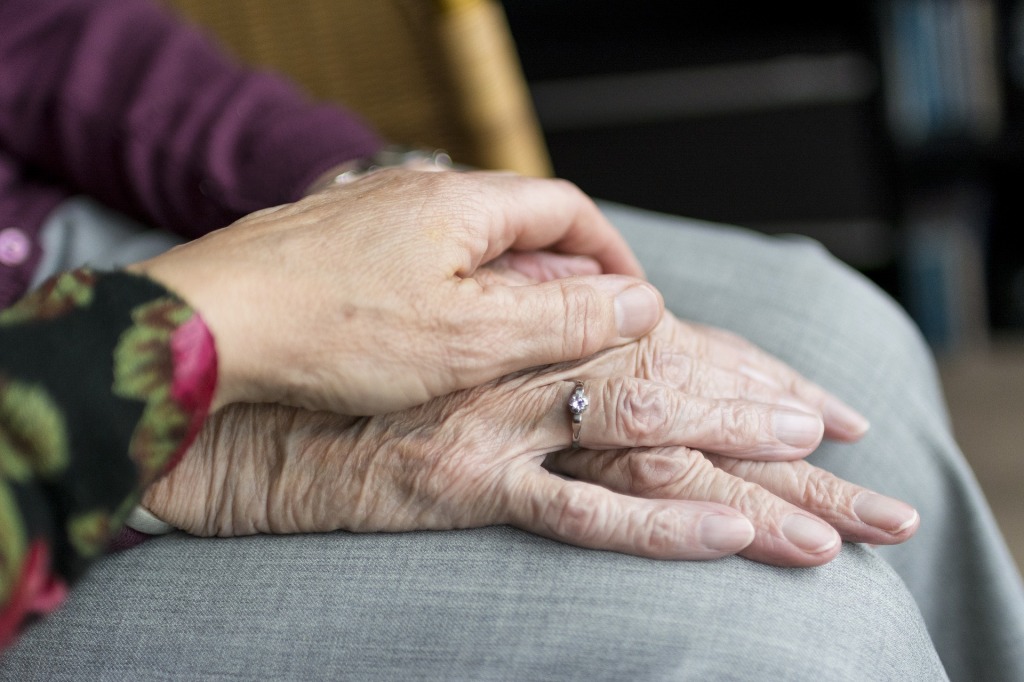How Death Doulas, Home Funeral Guides and Funeral Professionals Can Serve Families Together
This post is an excerpt from an article that appeared in OGR’s 2019 spring magazine The Independent. (login required)
The trajectory of my mother’s demise was classic: gradual physical systems failure, slow fade from engaging in the world beyond her favorite blue chair. By the time she was deemed eligible for hospice, she was already past the point of no return. I moved her into my sun room, piped in music she found calming, and spent countless hours bouncing with her between the home she longed for and the people of her past. I was with her when her heart stopped and sat with her until I was ready to wake my sister, who helped bathe the body that had birthed us and that we had never before seen in the altogether. After shrouding and cooling her down, we gathered all of her favorite things, and started making phone calls.

Creating a Smooth Continuum of Care
What made the experience of my mother’s death so different from most was a simple but powerful fact: I was prepared. I had been a hospice volunteer and then staff educator for over thirty years. I had trained and worked with every well-known home funeral teacher in the country. I had written articles, books, and materials about funeral reform and alternative options for years. I had been up to my neck in forming national alliances for more than a decade to teach others how to care for the dying and the dead. And still I hit some snags.
As funeral directors well know, many families are unprepared to negotiate the after-death experience. Including a new breed of helpers, like end of life doulas and home funeral guides, is turning out to be a positive addition to the continuum of care options offered by an increasing number of hospices, and now being considered by some funeral homes.
Both end of life doulas and home funeral guides offer practical and emotional support to reduce caregiver exhaustion, facilitate communication, and encourage control for the dying and the family. These practitioners are poised to act as a complementary support to what funeral service professionals already do to serve their families. Although both practices have the same goal as funeral professionals to serve families, there are striking differences in areas that matter.
Enter End of Life Practitioners

Let’s start with end of life doulas, who provide non-medical, holistic support and comfort to the dying and their families, often in the form of advance care planning, hands-on comfort measures such as massage or Reiki, respite care and pet or child care assistance, even light housekeeping or meal preparation. Because they are on the scene from the beginning, they are uniquely positioned to assist with life review and legacy projects, guided visualization, or creating conscious dying plans and goals. Coordinating bedside vigils during the active dying phase may be a prelude to bereavement support after the death occurs.

Home funeral guides, by contrast, focus specifically on after-death education. They are often trained by seasoned educators in state legal requirements for body care, refrigeration, EDRS, and other critical information that allows the family to stay in charge without fear of missing deadlines or failing to follow the law. A home funeral guide’s job is to empower families and to assist them in making a smooth transition from hospice, hospital, or care facilities to the home for the vigil period prior to funeral services and disposition. They are also facilitators between the family and professionals, including clergy and funeral directors, ensuring that everyone knows who is doing what. They make it possible for funeral directors to offer in-home services without draining their staff reserves.
Home Funeral guides are not in any way a substitute for a professional funeral director. They are aware they cannot charge for anything resembling funeral directing, hands-on body care, or even planning in some states, and follow the Funeral Rule when providing multiple services.
LEE WEBSTER
Expanding Your Services
Some funeral professionals have tried to meet these changing needs themselves by offering house calls and vigil support, even embalming and return of the body home, to varying degrees of success. But the public perception tends to be that funeral directors arrive after the fact, and the lane change to pre-death in-home purposes or being present in the home for longer than transfers may be a bridge too far for many. End of life practitioners, on the other hand, are usually involved in their communities in different roles, perhaps as faith community members, hospice volunteers, or in some other public service capacity, and might be more readily perceived as helpers rather than authorities. Funeral home owners could consider partnering with an end of life practitioner to help supplement their offerings.

Guiding hands-on care by family members, coordinating processions, and life story collection are just a few examples of time-intensive services many funeral professionals simply don’t have time or personnel to perform, though many funeral directors want to do all they can to offer personalized services. A trained end of life practitioner can perform these initiatives in concert with other professionals, relaying life review information to clergy and funeral directors, preparing the family for pick up, remaining behind when invited by the family, and many other activities that bridge the time and service gap. This presence signals families that funeral service is able and willing to meet their changing needs.

Partnering with an end of life practitioner could become a two-way partnership that meets everyone’s goals, with practitioners benefiting from the increase to their visibility and funeral homes enjoying an enhanced community connection. Funeral professionals partnering with educators who promote your firm as being more open, forward-thinking, and caring of the whole family ultimately demonstrate a willingness to provide the services these families are clamoring for.
Resources
National Home Funeral Alliance https://homefuneralalliancee.org
National End of Life Doula Alliance http://www.nedalliance.org


